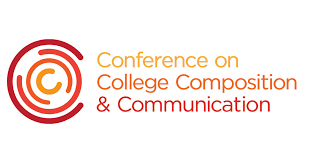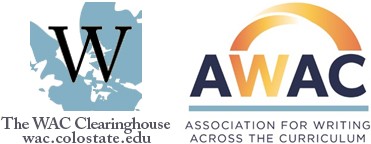"Teachers as Intellectuals": Threshold Concepts as Guideposts for Change in Teacher Education
Talking Threshold Concepts and Social Justice as a Department
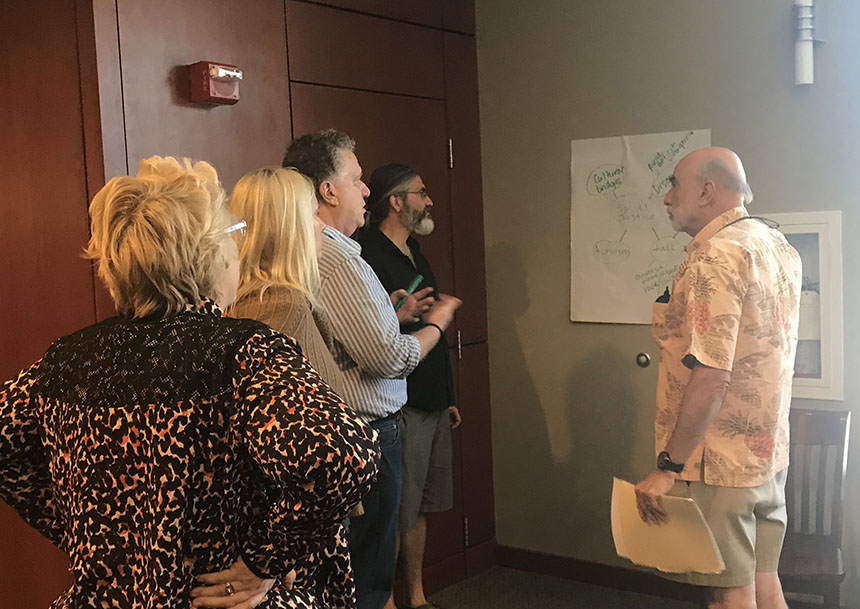
The teacher education department has graduated two cohorts of Howe Faculty Writing Fellows and held a department-wide workshop focused on threshold concepts and social justice in the last year. Schultz said having two teams of graduates led to a “critical mass” of department members who understood the framework.
“Having insider-outsider perspective is really helpful,” Schultz said when asked about his decision to have this department-wide workshop.
“Because we operate from a place of ‘we all believe this,’” Schultz said, “we don’t actually stop and wrestle with ideas that are really complex but sometimes appear really simple.”
“We can, in a strategic plan, name these goals. We can then create objectives under those goals and make specific actions,” he said. “But what is it that we agree upon that are the cornerstone pieces of the work that we’re doing?”
Threshold concepts are, at least for Schultz, those cornerstones.
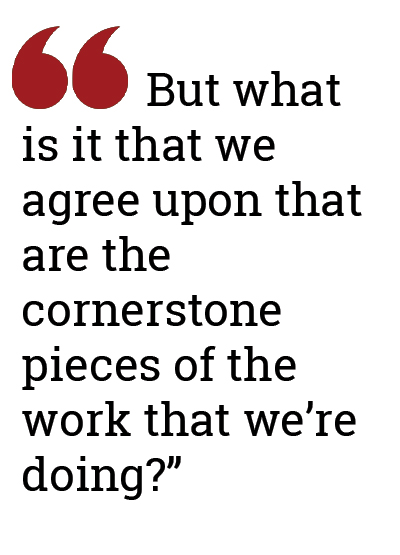
He said he sees their use as a guidepost at play in ongoing changes, such as the early childhood education program’s curricular revision to meet state-mandated changes in grade bands for licensure. In the state of Ohio beginning in 2020, those wishing to teach early childhood education will be licensed preschool through fifth grade. Currently, early childhood education programs license teachers for preschool through third grade.
“It’s an opportunity to re-envision” what the program looks like, Sander said of the work his colleagues are doing. “How are we going to ensure that we’re not just getting the same classes put in a different order” but actually imagining what a “K through 5 program would look like.”
This change illustrates the many stakeholders that influence the work of teacher educators not only at Miami, but across the state and country such as state legislatures and national accreditation agencies. But Schultz said it’s important to “resist the idea that we’re controlled by entities beyond our say” and instead to ensure that the department meets mandates in ways that fit their values about education.
For Miami’s department of teacher education, their threshold concepts and the goals of the strategic plan help them navigate these changes and choices, serving as a lens through which they view their work.
When asked what other changes or developments he anticipated, both Schultz and Sanders indicated that the department has several ongoing efforts involved in realizing their goals and strategic plan.
“In a teacher education department, curriculum is fluid,” Schultz said, “because we are trying to be culturally and contextually responsive to our students” and to those students who will be taught by Miami’s teacher education graduates.
“It’s an ongoing endeavor,” he said.
Howe Writing Across the Curriculum Programs
The mission of the Howe Writing Across the Curriculum Programs is to ensure that all Miami faculty and graduate teaching assistants can effectively include writing as a means to support learning in their courses and programs.
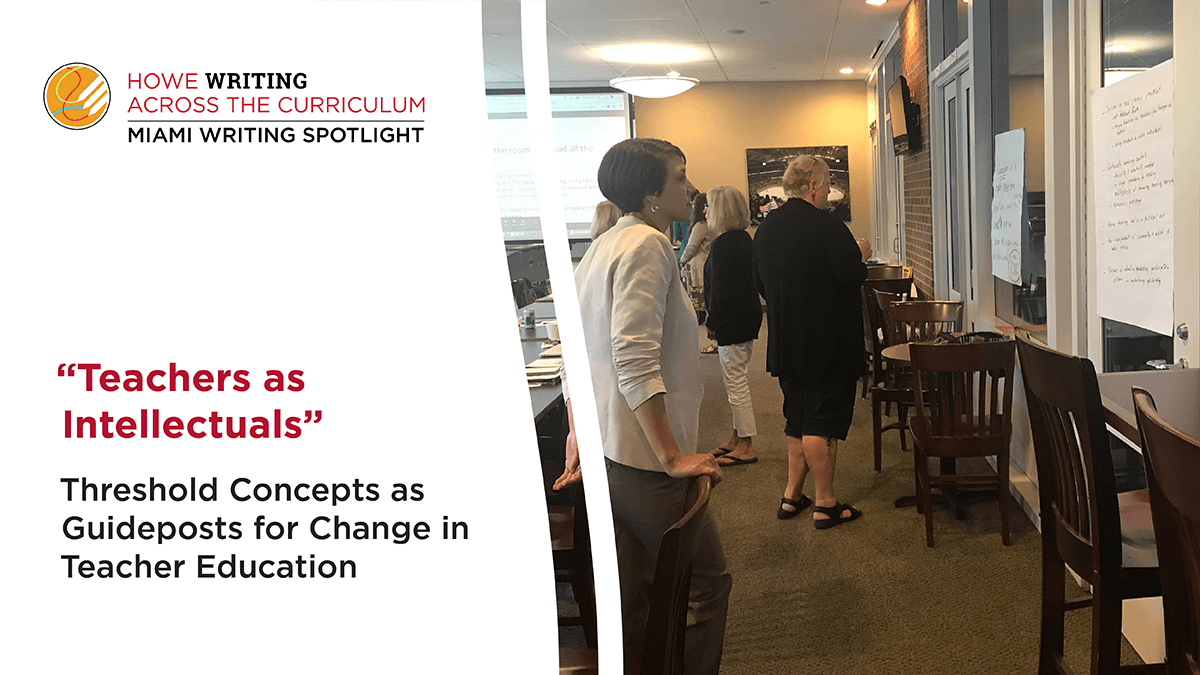
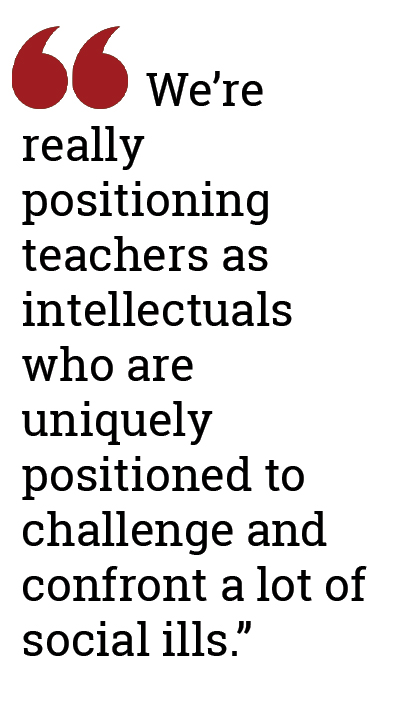 Sander explained how this goal relies on a repositioning of teachers and teaching.
Sander explained how this goal relies on a repositioning of teachers and teaching.